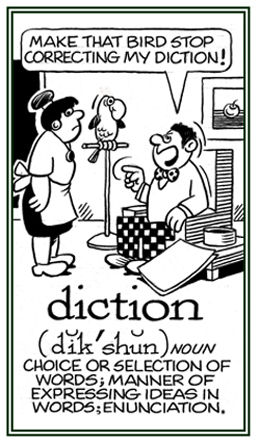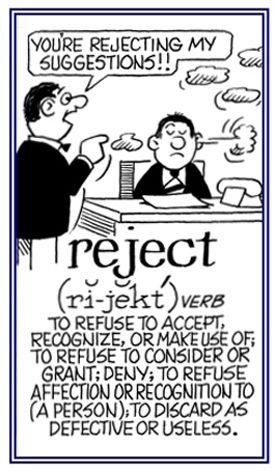Internet: De-capitalizing the word
(the word internet is now a common noun, not a proper noun)
The capital "I" that usually begins the word "Internet" is now considered to be grammatically invalid.
Joseph Turow, professor at the Annenberg School for Communication at the University of Pennsylvania, has started a crusade to de-capitalize Internet.
- Turow says the Internet revolution is over and that it is part of everyone's life and it is as common as air and water; neither of which starts with a capital letter.
- Although many still capitalize World Wide Web, words like "web site", and the online journals known as "weblogs" (or, simply, "blogs") are increasingly written in the lowercase.
- Some believe that the Internet's capital "I" is virtually engraved in stone, because Microsoft Word automatically capitalizes the lowercase internet.
- It is believed that we should treat the internet in the same way we refer to television, radio, and the telephone; all of which were capitalized when they were first presented to the public.
- Dictionary editors have dismissed the idea of using lowercase for Internet because dictionaries reflect what is "out there" in other print sources.
- On the other hand, an assistant managing editor at one newspaper said that "there is some virtue in the theory" that Internet is becoming a generic term and so should be spelled as internet, but newspapers were unlikely to make any changes that were not reflected in authoritative dictionaries. Again, dictionary editors want to see internet in common print usage; so, they go back and forth passing the "buck".
- So far, there is no great movement to render Internet as internet any time soon. Just about every "spell checker" automatically changes the lowercase "i" into its current Internet capitalized format.
Publications, on and off the internet, are still using "dictions" to require that the capitalized Internet should be the choice for printed contents.

Go to this Word A Day Revisited Index
so you can see more of Mickey Bach's cartoons.
i FOR AN I AND OTHER CAPITAL PUNISHMENT
Are you reading a Web page or a web page?
A few thousand years ago, we wouldn't have given it a second thought. There were no computers, of course. There were also no lowercase letters in the roman alphabet, which some people still call the Roman alphabet.
We now use a videocasette (not video cassette) to record a miniseries (not mini-series) about a tai chi (not Tai Chi) teacher from Zhou Enlai's (not Chou En-lai's) hometown (not home town).
Although World Wide Web (WWW) remains the same because it's an established proper noun, its derivatives no longer have a capital W.
Instead of Web writers, for instance, we now have web writers. They work on web pages that web browsers find on websites (which, as one word, is quite the sight). The World Wide Web, by the way, can be seen worldwide, which keeps life interesting.
An i for an I
The shift from Web to web nudged CBC's Online Language Advisory Board into taking a closer look at another word that's been gnawing at a few of us for years: Internet. Despite some other sweeping changes, the Canadian Press still prefers a capital "I". So do most major news organizations in North America.
But we write television reporters, not Television reporters, and radio programs, not Radio programs. So why do we need to call our web articles "Internet stories"?
A few years ago, when the internet was still relatively unknown, the capital "I" seemed to suit the word. Now, however, it stands out as being silly or frivolous; especially, when friends at CBC's internal network have been told that it doesn't merit a big letter.
So CBC News Online has adopted internet – a small sign, we think, that the medium is maturing.
An eye on dictionaries
We're not alone. The BBC and many British newspapers use internet. The Times (in London, not New York) has even slashed WWW down to "world wide web." Some lexicographers are betting that the trend toward a small "i" will continue, and that dictionaries will eventually be updated, but the move may take awhile.
A quick check of hundreds of newspapers, mostly from Britain and the U.S., suggests the ratio is about 4.5 to 1 (635 for Internet, 140 for internet), according to the chief editor of the Oxford English Dictionary, John Simpson.
When asked for a comment by CBC.ca this week, he pointed out that Oxford bases its entries for such words on current evidence of popular use. At the moment, most published material features Internet.
"Maybe internet will become standard – it saves an extra shift-key depression on the keyboard – but it's not there yet," Simpson said.
Too many authorities are rejecting the logical reasons for not capitalizing internet; especially, in the U.S.

Go to this Word A Day Revisited Index
so you can see more of Mickey Bach's cartoons.
Letter of the law
A few people claim that the internet demands a capital "I" because it's a place like no other that's been given a name all its own. Actually it's not really a place. It's an invention, and unlike, say, Touchtone or Xerox, it's never had a single company enforcing trademark protection.
In fact, some of the internet's creators have gone to court to make sure that the word remains in the public domain.
One of them is Robert Kahn, who helped lay the groundwork for the global network of computers we use today. "We defended the right of people to use the word," he told the New York Times, "whether you use a cap 'I' or little 'i'."
Even if it's thought of as a unique place, internet can be treated in the same way as cyberspace; as a noun, not as a "proper" noun. In outer space, of course, there are nicknames, such as Milky Way. But the universe, itself, doesn't merit a capital U. The universe is bigger than the Milky Way. The internet is larger than a Palm Pilot or even the World Wide Web.
No universal rules
In English, the choice of internet or Internet and web or Web is a matter of preference not accuracy. One of the primary goals of all usage guides is consistency. Since dictionaries often list more than one version of a term ("MC" and "emcee", for instance), newsrooms and publishing houses have to come up with their own decisions.
Given the atmosphere of confusion over the E in Earth (a planet with one moon) versus the e in most expressions featuring the word earth ("what on earth?"), it's not surprising to hear editors screaming EeEeEeEeEeE when they discover orbiting inconsistencies destined to collide.
At the New York Times, they still eat French fries, while at the Canadian Press they find the big "F" a bit hard to swallow. German suddenly looks pretty appealing, with its relatively straightforward capitalization of virtually all words acting as nouns; "something of importance" (etwas Wichtiges); "to a writer" (ein Verfasser); "who's in a hurry" (er/sie ist in Eile).
There's no universal set of rules in English, just as there's no consensus on what the U in URL stands for. Many dictionaries list both "uniform" and "universal" before "resource locator." Even programmers writing explanatory notes at the World Wide Web Consortium seem to go back and forth.
We have our own internal style guide at CBC.ca, several shelves crammed with other reference books, a bottle of Aspirins (which, in the United States, can be called "aspirins" because the word no longer enjoys proprietary protection down there), and the internet (not Internet) is just a click away.
